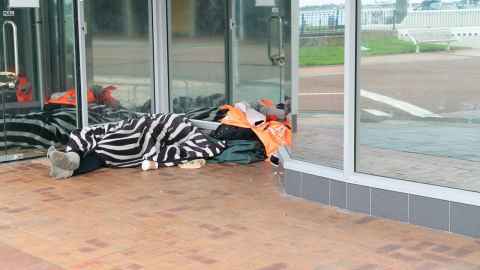NZ’s ugly inequities laid bare
11 June 2020
Opinion: Being in lockdown revealed, worsened and even created inequities that we now must address from Level 1 and beyond, writes Karen V. Fernandez.

And when the danger passed, and the people joined together again, they grieved their losses, and made new choices, and dreamed new images, and created new ways to live and heal the earth fully, as they had been healed. (Extract from In the Time of Pandemic” by Kitty O’Meara)
Did you rejoice when you heard we were moving down to Level 1? I wonder if the homeless, temporarily housed during lockdown, felt as positive as they faced losing their brief safe havens?
One homeless man, interviewed in his temporary motel accommodation, gratefully acknowledged the help, but worried it would be even harder to resume life “outside”. A Northland child whose family had been rehoused from leaking campervans to ones not needed for locked-down holidaymakers, exclaimed it was “like being on holiday!”
Does experiencing the basic comforts the rest of us take for granted have to be only a temporary respite for those less fortunate? Can we look away as fellow humans shiver and suffer on pavements, or in rusty cars or leaky buildings (and let’s not disgrace ourselves further by calling these “homes”)?
Does life “outside” lockdown have to be the same as before? Will the creative families whose private lockdown sporting events were featured on the news in lieu of “live sport” resume passively watching individual screens in parallel? During lockdown, the technology that isolated us became a priceless connector to the “outside” for many. However, families and especially children without devices and internet access at home could not access education, vital community services or communicate with wider whānau.
What about the stark contrast between office workers queuing up for their first takeaway flat whites versus the newly unemployed lining up for food parcels?
The Government proactively ordered devices for affected children and their families. However, even if these devices had all arrived in time (which they did not), the inequities caused by lack of power, no or insufficient internet bandwidth, lack of printers and scanners are not resolved by providing a single device that multiple family members must share. Not only that, children and their family members without a history of working with personal devices would certainly lack the critical knowledge needed to gain the maximum benefit from those devices.
Some changes will happen regardless. Those with lost or reduced incomes cannot resume social and retail therapy. Those of us who were fortunate enough to have survived lockdown economically may be taking sobering looks at our finances, and wondering if the economies we made in lockdown could be extended. For example, being in lockdown dampened our literal and figurative need to keep up appearances – if our hair was greyer and shaggier, or our shabby mailbox not replaced, the few who saw us or it, understood. Perhaps others could be more accepting if we went to the barber or frequented our expensive salon less often.
Lockdown had ended, but the digital acceleration it forced upon us will continue to change the way we live and work. It is likely that employers, colleagues, customers, and students will all be more familiar and more accepting of a request to “zoom in” to a meeting rather than have to crawl on the motorway for a longer duration than the meeting itself. Perhaps telecommuting sometimes could maintain some of the personal gains we experienced, not to mention the motorway congestion for those not so fortunate.
Being in lockdown revealed, worsened or even created inequities that our new reality must address. Who did not notice the irony of managers safely at home using zoom to talk to news reporters about the backlash that their essential frontline staff experienced while these workers risked their personal well-being to serve their angry, self-entitled customers? What about the stark contrast between office workers queuing up for their first takeaway flat whites versus the newly unemployed lining up for food parcels? What about entitled rich folk who “economised” by only staying at Novotels on their European jaunt last year complaining of the unfairness of historically under-privileged groups being given a helping hand up?
These are just the obvious inequities. Hidden away from prying eyes, some rural whānau continue to live without heat and mains power. Before, during and after lockdown, some women, children and pets cringed in fear as the man of the house ominously slams a door shut. Is this the New Zealand we want to live in? There are good sorts everywhere working to help as best they can but they cannot do it alone. What will you do to make sure that our New Zealand offers each member of our team of five million the best possible future that each of us can aspire to?
Dr Karen V. Fernandez is Associate Professor of Marketing at the Business School.
This article reflects the opinion of the author and not necessarily the views of the University of Auckland.
Used with permission from Newsroom NZ’s ugly inequities laid bare 11 June 2020.
Media queries
Alison Sims | Research Communications Editor
DDI 09 923 4953
Mob 021 249 0089
Email alison.sims@auckland.ac.nz